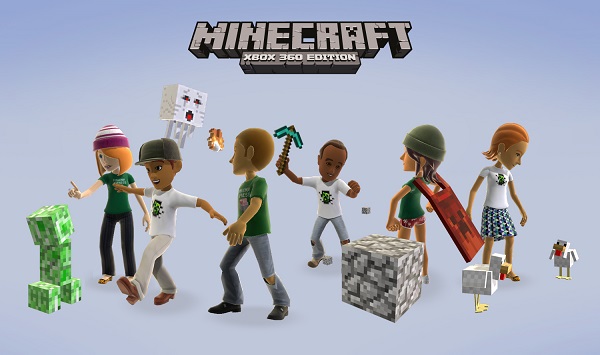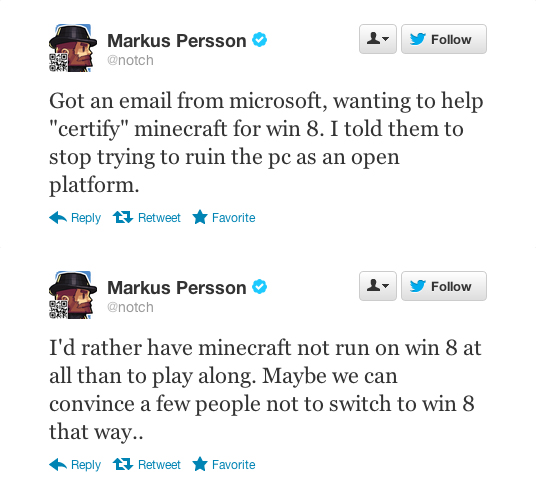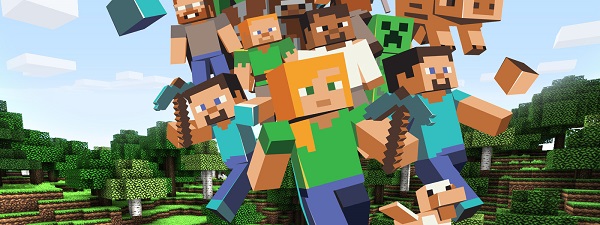And there we have it. After days of rumour and speculation, it’s been announced that Microsoft is to buy Minecraft developer Mojang for an astronomical 2.5 billion dollars, and that founders Marcus ‘Notch’ Persson, Carl Manneh and Jacob Porser are to leave the company, presumably each with bank accounts the size of Uganda. Nothing has yet been announced as to the fate of Mojang’s 40-something employees.
The announcement, made by Mojang’s Owen Hill, explains the reasoning behind the sale:
“Minecraft has grown from a simple game to a project of monumental significance. Though we’re massively proud of what Minecraft has become, it was never Notch’s intention for it to get this big.
“As you might already know, Notch is the creator of Minecraft and the majority shareholder at Mojang. He’s decided that he doesn’t want the responsibility of owning a company of such global significance. Over the past few years he’s made attempts to work on smaller projects, but the pressure of owning Minecraft became too much for him to handle. The only option was to sell Mojang. He’ll continue to do cool stuff though. Don’t worry about that.
“There are only a handful of potential buyers with the resources to grow Minecraft on a scale that it deserves. We’ve worked closely with Microsoft since 2012, and have been impressed by their continued dedication to our game and its development. We’re confident that Minecraft will continue to grow in an awesome way.
“Minecraft means many different things to millions of people across the world, and to each and every Mojangsta. We feel that this is the best way for everyone – you guys included – to benefit.”
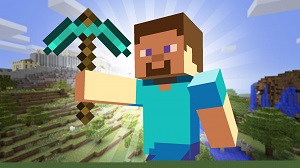 I have to admit, I’m finding myself decidedly torn about this one. I’ve never been the type to resent artists a big payday: creative industries are a hard, hard game and often one that engenders short careers and scant paydays, and I’ve always been conscious of the fact that one man’s ‘selling out’ is another man’s long-earned reward for years of hard and unsung work. But at the same time, it’s hard to forget that Minecraft was already a global phenomenon, one that had already made Notch and his colleagues rich and become a legitimate industry in the gaming world on its own. It’s even harder to forget how Notch has fostered an image as a indie icon over the years, speaking out against similar acquisitions such as that of Oculus by Facebook earlier this year. he vocally opposed that sale, even cancelling an in-development version of Minecraft for the Rift – a decision he later reversed. And let’s not forget his vocal protests at Windows 8 last year, using Twitter, his traditional weapon of choice, to say:
I have to admit, I’m finding myself decidedly torn about this one. I’ve never been the type to resent artists a big payday: creative industries are a hard, hard game and often one that engenders short careers and scant paydays, and I’ve always been conscious of the fact that one man’s ‘selling out’ is another man’s long-earned reward for years of hard and unsung work. But at the same time, it’s hard to forget that Minecraft was already a global phenomenon, one that had already made Notch and his colleagues rich and become a legitimate industry in the gaming world on its own. It’s even harder to forget how Notch has fostered an image as a indie icon over the years, speaking out against similar acquisitions such as that of Oculus by Facebook earlier this year. he vocally opposed that sale, even cancelling an in-development version of Minecraft for the Rift – a decision he later reversed. And let’s not forget his vocal protests at Windows 8 last year, using Twitter, his traditional weapon of choice, to say:
He elaborated on these statements in a Reddit AMA, in which he said:
“I hope we can keep a lot of open and free platforms around. If Microsoft decides to lock down Windows 8, it would be very very bad for Indie games and competition in general. If we can keep open platforms around, there’s going to be a lot of very interesting games in ten years, mixed in with the huge AAA games that we all love.”
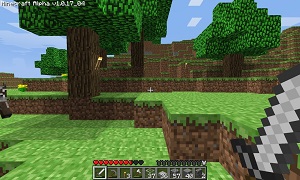 Admittedly, Microsoft have since cooled their jets on making Windows 8 this all-encompassing system of control over PC gaming, based on the OS’s poor reception – spearheaded, ironically enough, by people like Notch. So is this Notch’s final gift to indie gaming, or did he simply just give up and cash in?
Admittedly, Microsoft have since cooled their jets on making Windows 8 this all-encompassing system of control over PC gaming, based on the OS’s poor reception – spearheaded, ironically enough, by people like Notch. So is this Notch’s final gift to indie gaming, or did he simply just give up and cash in?
Either way, we can probably all be expecting that official version of Minecraft for Windows 8 sometime soon.
At the moment Microsoft’s plans for the blocky behemoth have not been announced, but Microsoft’s treatment of past acquisitions has left many nervous, especially those in the modding community and those who have purchased Minecraft on non-Microsoft platforms. Speculation abounds that Microsoft may use Minecraft to boost sales of their mobile devices – a reasonable guess, seeing as they have always flagged in that department. It’s also been suggested that the game’s bounless potential as an educational tool may be explored. It’s all up in the air what will become of the beloved building game, but for now we all have to say our goodbyes to Minecraft the Indie Phenomenon, and say hello to Minecraft the Corporate Property.
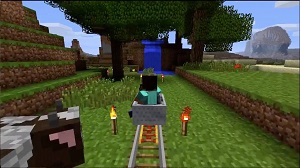 But whatever drove Notch to finally sell up, it can’t be denied that we’re watching history being made. Cultural movements throughout history have always tended to move in an arc: they appear, cause widespread confusion and fear, eventually become loved and hailed an an alternative to the mainstream (Often described in revolutionary terms) and then the mainstream takes its brightest and best under its wing. This is indie gaming’s equivalent of Elvis joining the Army, of Dylan taking up the electric guitar, of the Sex Pistols signing to EMI: it’s the outsiders, the Other, officially joining the club, the full stop that completes the story of how the mainstream took ownership over the alternative. Of course, this could be seen as just a natural part of how new ideas and new talent drives the development of an artform and how they ultimately have to become the mainstream to truly push things forward… and that would be a perfectly astute reading of how it works. With all the talk of gaming’s development and future over the last few weeks, it seem apt that it would lead to such a dramatic example of how this young artform is starting to see the same cycles develop that have marked the ebb and flow of popular creative media since time immemorial.
But whatever drove Notch to finally sell up, it can’t be denied that we’re watching history being made. Cultural movements throughout history have always tended to move in an arc: they appear, cause widespread confusion and fear, eventually become loved and hailed an an alternative to the mainstream (Often described in revolutionary terms) and then the mainstream takes its brightest and best under its wing. This is indie gaming’s equivalent of Elvis joining the Army, of Dylan taking up the electric guitar, of the Sex Pistols signing to EMI: it’s the outsiders, the Other, officially joining the club, the full stop that completes the story of how the mainstream took ownership over the alternative. Of course, this could be seen as just a natural part of how new ideas and new talent drives the development of an artform and how they ultimately have to become the mainstream to truly push things forward… and that would be a perfectly astute reading of how it works. With all the talk of gaming’s development and future over the last few weeks, it seem apt that it would lead to such a dramatic example of how this young artform is starting to see the same cycles develop that have marked the ebb and flow of popular creative media since time immemorial.
However, it’s also a reminder that no matter how noble your accomplishments, how loudly you proclaim your rhetoric or how spotless your persona is, at the end of the day everyone has a price. The only difference is what it takes for that price to be negotiated.
UPDATE: Er, is it actually an update when you’ve literally just finished writing the article? Anyway, we seem to have word from the man himself as to why he sold Mojang. From his own blog, Notch says the following:
“I’m leaving Mojang
I don’t see myself as a real game developer. I make games because it’s fun, and because I love games and I love to program, but I don’t make games with the intention of them becoming huge hits, and I don’t try to change the world. Minecraft certainly became a huge hit, and people are telling me it’s changed games. I never meant for it to do either. It’s certainly flattering, and to gradually get thrust into some kind of public spotlight is interesting.
A relatively long time ago, I decided to step down from Minecraft development. Jens was the perfect person to take over leading it, and I wanted to try to do new things. At first, I failed by trying to make something big again, but since I decided to just stick to small prototypes and interesting challenges, I’ve had so much fun with work. I wasn’t exactly sure how I fit into Mojang where people did actual work, but since people said I was important for the culture, I stayed.
I was at home with a bad cold a couple of weeks ago when the internet exploded with hate against me over some kind of EULA situation that I had nothing to do with. I was confused. I didn’t understand. I tweeted this in frustration. Later on, I watched the This is Phil Fish video on YouTube and started to realize I didn’t have the connection to my fans I thought I had. I’ve become a symbol. I don’t want to be a symbol, responsible for something huge that I don’t understand, that I don’t want to work on, that keeps coming back to me. I’m not an entrepreneur. I’m not a CEO. I’m a nerdy computer programmer who likes to have opinions on Twitter.
As soon as this deal is finalized, I will leave Mojang and go back to doing Ludum Dares and small web experiments. If I ever accidentally make something that seems to gain traction, I’ll probably abandon it immediately.
Considering the public image of me already is a bit skewed, I don’t expect to get away from negative comments by doing this, but at least now I won’t feel a responsibility to read them.
I’m aware this goes against a lot of what I’ve said in public. I have no good response to that. I’m also aware a lot of you were using me as a symbol of some perceived struggle. I’m not. I’m a person, and I’m right there struggling with you.
I love you. All of you. Thank you for turning Minecraft into what it has become, but there are too many of you, and I can’t be responsible for something this big. In one sense, it belongs to Microsoft now. In a much bigger sense, it’s belonged to all of you for a long time, and that will never change.
It’s not about the money. It’s about my sanity.”
Well then. This makes his decision a lot more understandable, and makes a pretty bold statement as to how the effects of the last few weeks’ controversies have been felt in the wider game industry. While his explanation of the decision as a short-term judgement seems to run contrary to reports that Notch has been close with Microsoft for some time and proposed the deal to them several months ago, but you have to give the guy props for owning up to the contradictions of his behaviour. And with the oft-fractured relationship between developers and a vocal and distasteful minority of gamers coming to the fore in recent weeks, it’s hard to blame him for wanting to walk away. Of course this blog post is just breaking and may yet turn out to be fake, but for now it all seems much more understandable than it did before.
Hopefully the ‘Why can’t we just talk about games’ contingent who made noises at the apex of the Gamergate furore may now see a little more clearly that these conversations are about games, and the creators who the behaviour of some are chasing away.
